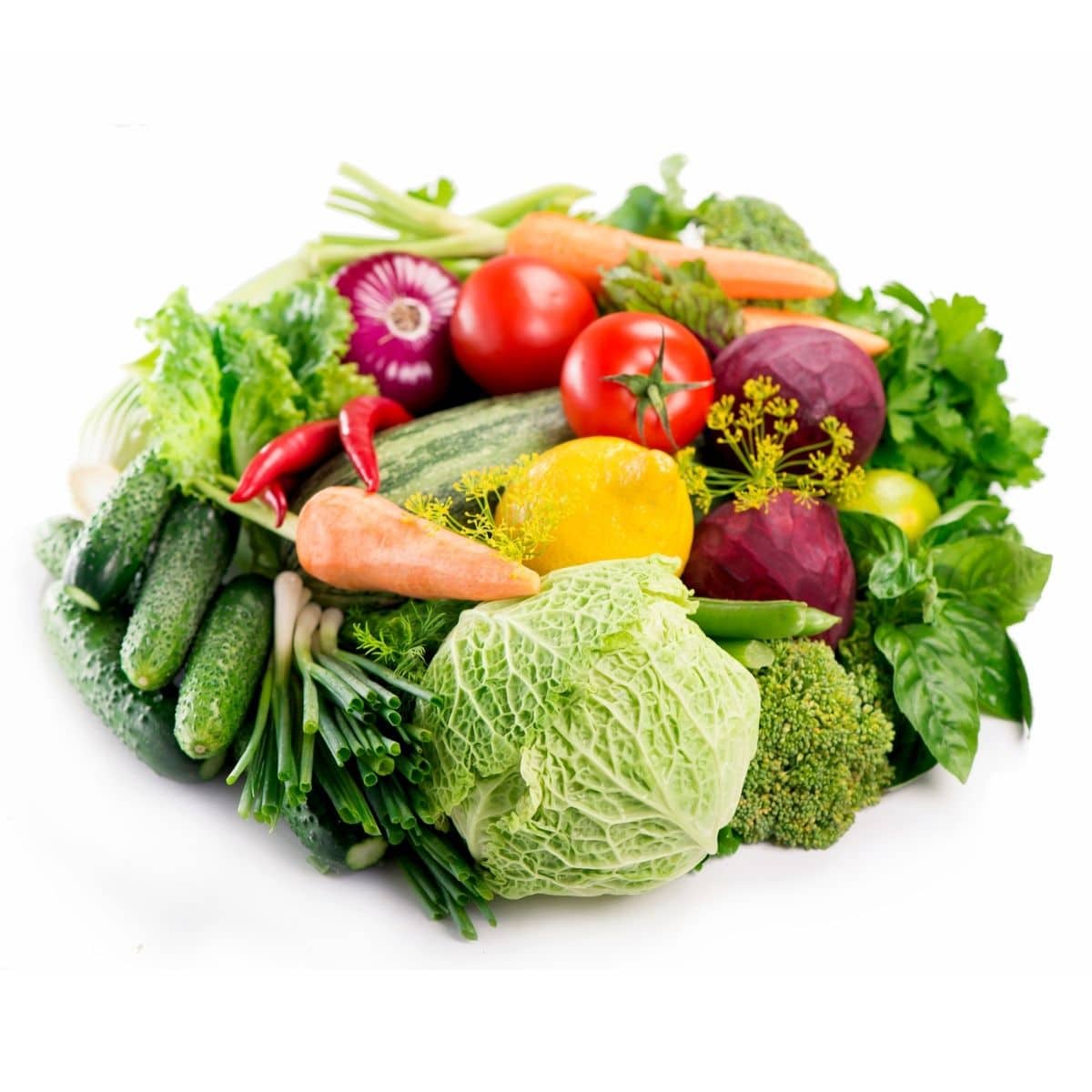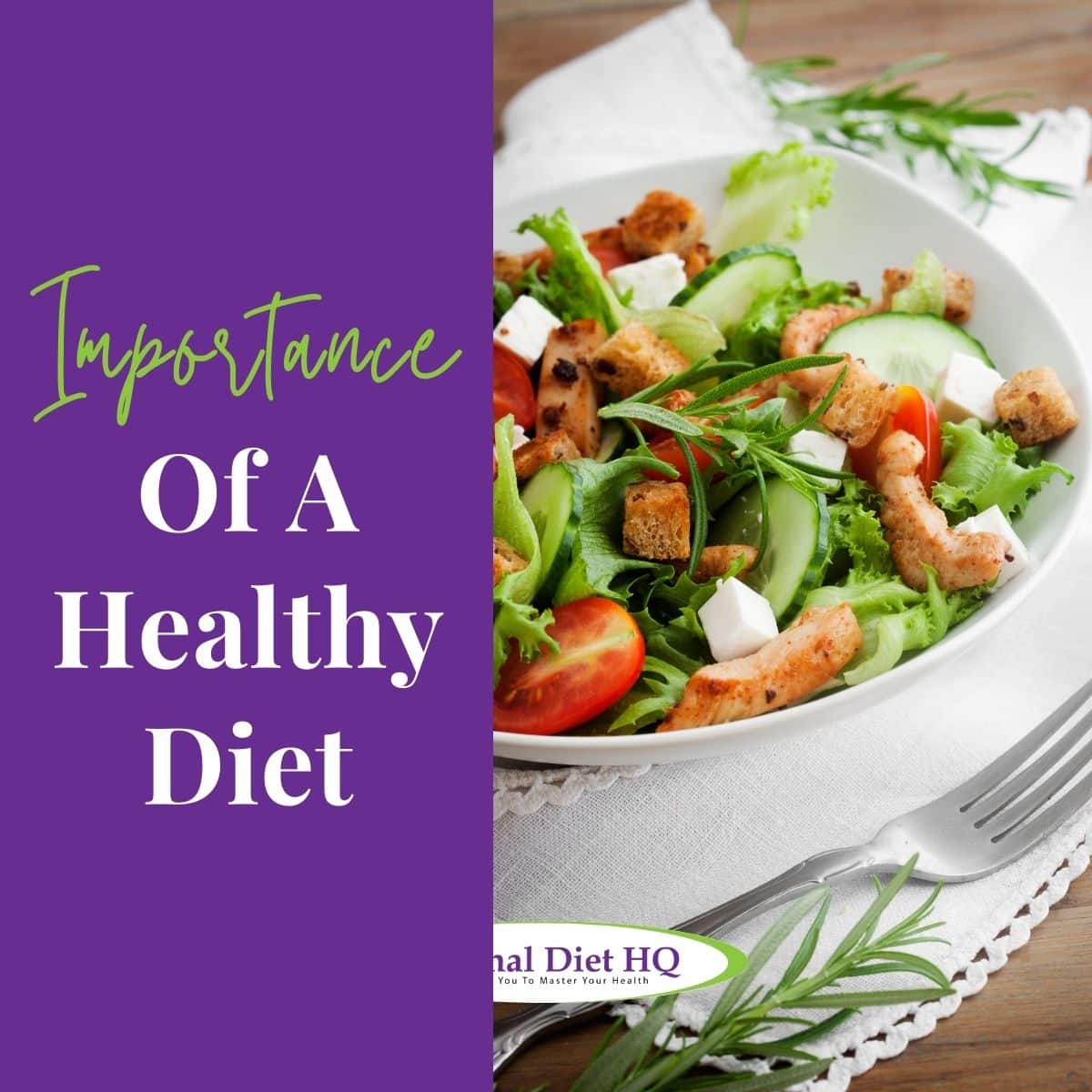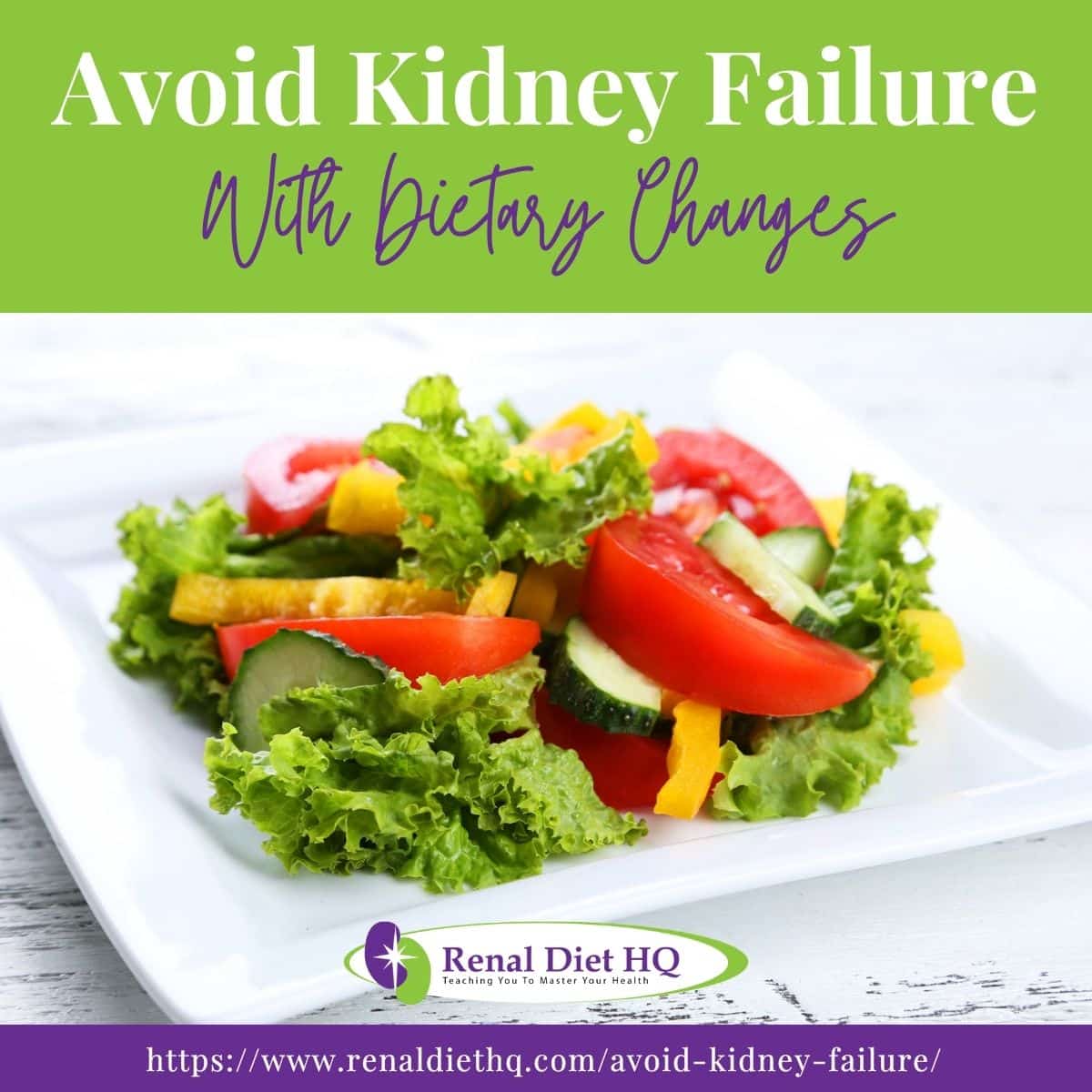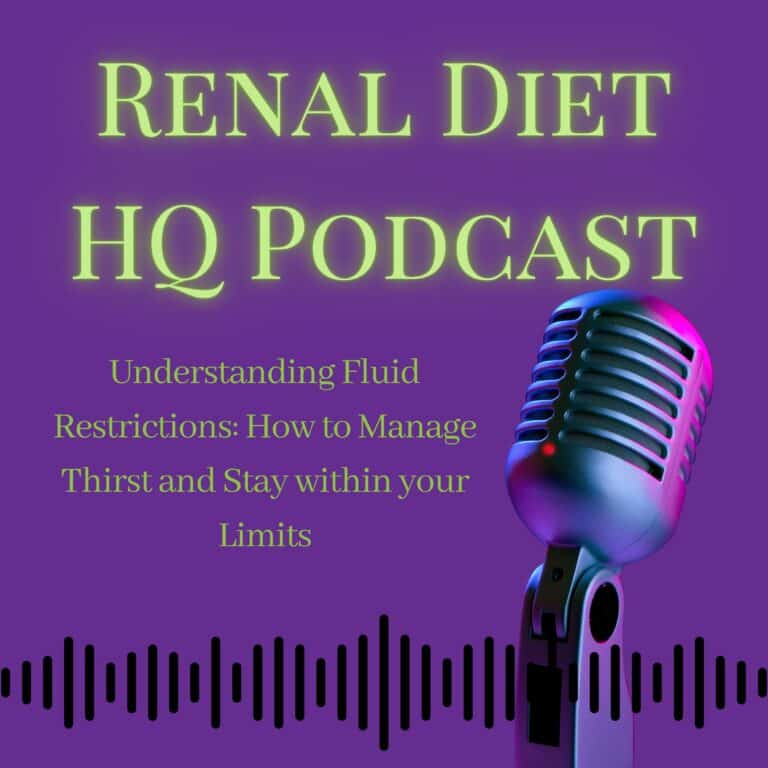Avoid Kidney Failure with Dietary Changes
You are what you eat, and when it comes to your kidneys, this couldn't be truer. You may have heard the old adage 'an ounce of prevention is worth a pound of cure,' and this rings especially true for chronic kidney disease. You can avoid kidney failure with dietary changes.
Kidney disease is a diagnosis that no one wants to hear. The fact that you have a chronic illness, one that you will live with for the rest of your life, is a challenging and daunting truth to come to terms with.
It is just too easy for some to focus on the negative and to lose hope in the future, but you can take steps to avoid kidney failure. There is hope, however, if you are willing to work for it.

More than 1 in 7 American adults suffer from this condition, with diabetes and hypertension being the leading causes. However, with dietary changes and healthy habits, you can slow kidney disease progression and avoid loss of muscle mass.
By taking control of what you eat, you can help prevent or manage conditions like hypertension that contribute to kidney damage over time. A kidney-friendly diet should limit sodium and fat while focusing on fruits, vegetables, whole grains, low-fat dairy, and lean meats.
Following a personalized meal plan created by a registered dietitian can make all the difference in managing your condition effectively. In this article, we'll explore the causes of chronic kidney disease as well as ways to prevent it through healthy lifestyle choices such as proper nutrition.
Let's dive in!
Jump to:
- Dietary Changes Can Be Easy
- What Is Kidney Disease
- Causes and Effects
- Prevention and Management
- Importance of a Healthy Diet
- Kidney-Friendly Foods
- Portion Control
- Limiting Sodium Intake
- Reducing Sugar and Sweets
- Working with a Registered Dietitian
- FAQs for How to Avoid Kidney Failure
- Avoid Kidney Failure With These Dietary Changes
Dietary Changes Can Be Easy
You'll learn how to make simple adjustments to your eating habits that can protect your kidney health and promote overall wellness. Kidney health tips include limiting sodium and fat, and instead focusing on fruits, vegetables, whole grains, low-fat dairy, and lean meats. It's important to note that high-protein diets may be harmful to kidney health and should be avoided.
Common misconceptions about kidney failure often revolve around the belief that there is nothing you can do to prevent it. However, lifestyle changes such as following a healthy diet and staying hydrated can go a long way in protecting your kidneys from damage. Drinking plenty of water is essential for flushing out toxins from your body and promoting healthy kidney function.
The role of exercise in kidney disease cannot be overstated. Regular physical activity helps lower blood pressure levels which is crucial in maintaining good kidney health and preventing kidney disease. Additionally, exercise helps keep weight under control which reduces the risk of developing chronic conditions (can CKD cause constipation) such as diabetes that can lead to kidney disease.
How does kidney failure affect the body? By making these simple adjustments to your lifestyle you can significantly reduce your risk of developing kidney failure.
For More Recipes and Ideas --->> Get Your Free Meals and Recipes That Are Perfect for Pre-Dialysis Diets, Pre-Dialysis with Diabetes, or Dialysis Diets.
What Is Kidney Disease
Chronic kidney disease (CKD) is a condition where your kidneys gradually lose function over time. This can take months or years, depending on your specific condition and how well you take care of yourself.
This condition can be caused by uncontrolled diabetes and high blood pressure, which are responsible for two thirds of the cases. Over time, untreated or uncontrolled diabetes and high blood pressure can significantly affect the development of CKD.
To reduce the progression of kidney disease, people with any stage of CKD who aren't on dialysis should limit their protein intake. The recommended amount is 0.8 grams per kilogram of body weight for CKD stages 1 and 2, and 0.6 grams per kilogram of body weight for CKD stages 3, 4, and 5. Additionally, men and women should avoid excessive drinking of alcohol as it can lead to kidney failure according to the National Kidney Foundation.
Can kidney disease cause heart problems? Understanding dietary restrictions is crucial for preventing kidney failure. With more than 1 in 7 Americans affected by CKD, it's important to take action by monitoring your protein intake and alcohol consumption levels carefully.
Doing so will help prevent further damage to your kidneys over time and protect against developing serious complications associated with this condition.
Causes and Effects
If you're not careful with your diet, high levels of potassium in certain fruits and vegetables or dairy products can cause serious health problems when you already have chronic kidney disease.
Potassium helps regulate heartbeat and muscle function, but too much can lead to hyperkalemia, a condition that can be life-threatening for people with CKD. Symptoms include weakness, nausea, and irregular heartbeat.
In addition to potassium concerns, a high-protein diet can also pose risks for those with CKD. Protein is essential for building muscle mass and repairing tissues in the body, but consuming too much protein puts added strain on the kidneys.
This is because the kidneys are responsible for filtering out waste products from protein metabolism. As such, diets that are high in animal-based proteins like meat and dairy may accelerate the progression of CKD.
A heart disease link has also been established for those with CKD. People who have late-stage kidney disease are at particularly high risk of developing heart problems because their heart has to pump more blood to their kidneys. Limiting saturated fats and your salt intake can help reduce this risk factor.
Additionally, reducing alcohol intake can help lower high blood pressure levels which can worsen kidney function over time.
Prevention and Management
Maintaining a healthy diet and working with a registered dietitian can help prevent or manage chronic kidney disease, ultimately improving overall health and quality of life.
A kidney-friendly diet should focus on limiting sodium, cholesterol, and fat while incorporating fruits, vegetables, whole grains, low-fat dairy products, and lean meats.
People who have already been diagnosed with CKD may also need to limit certain other nutrients such as phosphorus and potassium.
Lifestyle changes such as limiting alcohol intake and quitting smoking can also help prevent or manage kidney disease.
Working with a healthcare professional to monitor blood pressure levels and managing conditions like diabetes can also play a crucial role in preventing kidney failure.
While dietary changes are an important aspect of preventing or managing chronic kidney disease, dietary supplements should be approached with caution.
Some supplements can actually harm the kidneys if taken in large doses or for extended periods of time, as they can build up in the body and cause nausea and other problems. It's important to speak with a healthcare professional before incorporating any new supplements into your routine.
Overall, making small but meaningful changes to your diet and lifestyle can go a long way in supporting kidney health and preventing kidney failure.

Importance of a Healthy Diet
To keep your kidneys functioning properly, prioritize healthy eating habits. Incorporate plenty of fruits, vegetables, whole grains, and lean proteins into your diet. This is essential for disease prevention and maintaining a nutrient balance to avoid kidney failure.
Maintaining a healthy diet can help manage conditions like diabetes and high blood pressure which may contribute to chronic kidney disease. It's important to follow a renal-friendly meal plan to reduce the burden on your kidneys and slow down the progression of the illness.
Portion nutrition: Fill half of your plate with vegetables and fruits, one-quarter with lean protein, and one-quarter with whole grains to keep your blood pressure low.
Eating nutritious foods in moderation can prevent complications associated with CKD such as heart problems or bone weakness. A balanced diet not only helps maintain normal kidney function but also benefits overall health. Remember that following dietary restrictions doesn't have to be boring or restrictive - get creative with herbs and spices when cooking at home!
Incorporating good eating habits into your daily routine will help ensure long-term health for both yourself and those around you.
Kidney-Friendly Foods
You can easily incorporate delicious and healthy kidney-friendly foods into your daily routine to keep your kidneys functioning optimally. Here are five items to consider when looking for kidney-friendly food options:
- Low potassium options: Foods like cauliflower, apples, and green beans are great alternatives to high-potassium fruits and vegetables like bananas and avocados.
- Protein alternatives: Instead of red meat, try lean protein sources like chicken or fish that are lower in saturated fat. Plant-based protein sources such as lentils, beans, or lentils are also excellent choices and are also low in saturated fats. Go ahead and check out this protein for CKD Patients by stage.
- Phosphorus-free choices: Foods that are low in phosphorus include egg whites, almond milk, soy milk , apples, and berries.
- Kidney-friendly recipes: There are many resources available online for finding delicious recipes that cater specifically to those with kidney disease. Look for recipes that use fresh ingredients and avoid added sodium.
- Importance of hydration: Staying hydrated is crucial for maintaining good kidney health. Aim to drink at least eight cups of water per day if you have stage 1 or 2 kidney disease, but once you reach stages 3, 4, or 5 or if you are on dialysis, you should limit the amount of fluid that you drink.
Incorporating these choices into your diet can help prevent the progression of chronic kidney disease. By making small changes over time, you can create a sustainable eating plan that supports your overall health.
Remember to work with a registered dietitian who can help you develop a personalized meal plan based on your specific needs. With the right approach, following a renal failure diet doesn't have to be daunting - it can be an opportunity to discover new flavors and enjoy wholesome foods that nourish both body and soul.
Portion Control
If you're struggling with portion control, try filling half your plate with veggies and fruits - not only will this help manage your sodium intake (which should be limited to 2000 milligrams per day), if you have kidney disease.
But it's also a great way to get the fiber and nutrients your body needs; research shows that only 1 in 10 adults eat enough fruits and vegetables daily. Another helpful tip is to measure out your food portions using measuring cups or a food scale. This can give you a better understanding of what an appropriate serving size looks like for different foods.
Balanced meals are crucial when it comes to portion control. Try to fill one-quarter of your plate with lean protein, such as chicken breast or fish, and the other quarter with whole grains like brown rice or quinoa.
Incorporating healthy snacks throughout the day can also help prevent overeating during meal times. Check out these kidney friendly snacks.
The benefits of portion control go beyond just maintaining a healthy weight - it can also help prevent chronic diseases like kidney disease, heart disease, and diabetes.
By making small changes in how much you eat at each meal, you can improve your overall health and well-being. So next time you sit down for a meal, remember these tips for controlling portions and creating balanced meals that support optimal health.

Limiting Sodium Intake
Cutting back on salt can be challenging, but it's important for managing your overall health and preventing conditions like high blood pressure and heart disease.
How much sodium per day for renal diet? Sodium is found in many foods, including processed snacks, canned soups, and frozen meals. To limit your sodium intake, start by reading food labels and choosing low-sodium options. You can also use salt substitutes or herbs and spices to add flavor to your meals.
Reducing sodium has many health benefits beyond kidney disease management. It can help lower blood pressure, reduce the risk of stroke and heart disease, and improve overall heart health.
When meal planning, focus on whole foods like fruits, vegetables, lean proteins, and whole grains which are naturally low in sodium. Use sodium tracking tools or apps to monitor your daily intake.
Working with a registered dietitian can help you develop a personalized meal plan that meets your specific dietary needs while limiting sodium intake. A dietitian can also provide tips for cooking at home with less salt or finding healthy alternatives when eating out.
With dedication to making small changes every day, you can successfully manage kidney disease through a healthy low-sodium diet while reaping the rewards of better overall health.
Reducing Sugar and Sweets
Reducing sugar and sweets is essential for maintaining overall health, as excess added sugars can lead to a range of health issues such as obesity and type 2 diabetes. For those with chronic kidney disease, managing sugar intake becomes even more critical.
High blood sugar levels can damage the kidneys' blood vessels, leading to the development or progression of CKD. Healthy substitutions are an excellent way to satisfy your sweet tooth without negatively impacting your kidney health.
Instead of reaching for sugary treats, try incorporating sugar alternatives like stevia, xylitol, monk fruit extract, or erythritol into your diet. These options provide sweetness without the added calories or negative effects on blood sugar levels.
Managing cravings is also crucial when following a renal failure diet. Balanced dessert options like fruit salads or baked apples with cinnamon can provide a satisfying end to a meal while still remaining within dietary restrictions.
Remember to check labels carefully for hidden sources of added sugars and avoid processed foods whenever possible. Overall, reducing sugar and sweets in your diet is an important step in preventing kidney disease's progression and maintaining overall health.
With healthy substitutions and balanced dessert options, you can still enjoy satisfying treats while staying within dietary restrictions.
Don't hesitate to seek guidance from a registered dietitian nutritionist who can help develop personalized meal plans that fit your specific needs and preferences.
Working with a Registered Dietitian
Partnering with a registered dietitian can be an effective way to create personalized meal plans and learn how to make healthier choices that support kidney function.
A dietitian can provide you with individualized recommendations for your specific needs, taking into account any dietary restrictions you may have. They can also educate you on the nutritional content of foods and help you understand how certain ingredients affect the kidneys.
Meal planning is a crucial aspect of managing kidney disease, and a registered dietitian can help guide you in making healthy choices. They can provide ongoing support as you navigate any challenges or changes in your condition. By working with a dietitian, you'll gain valuable knowledge on how to eat well while still enjoying tasty meals.
In addition to providing nutrition education (renal diet education handout), a registered dietitian can also offer emotional support as you adjust to new dietary habits. They understand the unique challenges of managing chronic kidney disease and are there to assist you every step of the way.
By partnering with a dietitian, you'll have access to ongoing resources that will help ensure your long-term success in avoiding kidney failure through dietary changes.
FAQs for How to Avoid Kidney Failure
Embarking on a fitness journey can have numerous benefits for your overall health, including potentially preventing kidney failure.
By incorporating regular physical activity and making lifestyle changes, you can improve your cardiovascular health and blood pressure (grilling blood pressure), both of which are important factors in maintaining healthy kidneys.
Fitness programs and exercise routines can also help manage diabetes, a leading cause of kidney disease. While it's important to follow dietary restrictions for those with chronic kidney disease, adding exercise to your routine can be an effective complement to preventing kidney failure.
So why not take the first step towards a healthier you by incorporating fitness into your daily life?
If you're looking for herbal remedies to improve kidney function, it's important to be aware that there is limited scientific evidence to support their effectiveness.
It is essential for individuals with chronic kidney disease (CKD to be cautious about the supplements they consume. According to the Nati)onal Kidney Foundation of Hawaii, it is common for patients to avoid telling their doctors about the supplements they are taking.
However, it is crucial to inform your healthcare provider about any supplements you consume, especially if you have decreased kidney function. In such cases, it is best not to take even vitamin and mineral supplements without consulting your doctor. Some of the herbs that could be dangerous for kidney patients include:
Aloe
Dandelion
Nettle, Stinging Nettle
Rhubarb
Parsley Root
Senna
Yohimbe
While dietary changes can play a major role in managing chronic kidney disease, it's important to consider all options and make informed decisions about your health.
In conclusion, if you have kidney disease or are at risk, it is essential to consult your healthcare provider before taking any herbal supplements. Always keep your doctor informed about the supplements you are taking to ensure your safety and maintain optimal kidney health.
Stress can have a negative impact on your mental health and overall well-being, but did you know it can also affect your kidney health? That's right, chronic stress can lead to high blood pressure that can damage your kidneys over time.
But don't worry, there are steps you can take to manage stress and protect your kidney health. Lifestyle changes like regular exercise, good sleep quality, and mindful practices like meditation or yoga can help improve the mind-body connection and reduce stress levels.
It's important to prioritize your mental health for the sake of your physical health too.
If you have kidney damage, dietary interventions can play a crucial role in slowing the progression of the disease. Kidney-friendly foods like fruits, vegetables, whole grains, and lean meats can help manage conditions like diabetes and high blood pressure. It's important to limit sodium intake to 2000 milligrams per day.
While protein is essential for overall health, it should be consumed in moderation as high-protein diets may be harmful to kidney health. While reversing kidney damage with dietary changes alone may not be possible, following a kidney-friendly diet can significantly improve your quality of life and prevent further complications from arising.
Consult with a registered dietitian to develop a personalized meal plan that works best for you. Check out this 7 day meal plan for kidney disease.
If you're concerned about kidney failure, it's important to know the common symptoms and risk factors associated with this condition.
Kidney failure symptoms can include fatigue, weakness, nausea, vomiting, confusion, and difficulty breathing. Early detection is key to successful treatment of kidney failure.
Risk factors for kidney failure include diabetes, high blood pressure, heart disease, obesity, and a family history of kidney disease. Treatment options may include medications and dialysis in more severe cases.
Lifestyle changes such as a healthy diet low in sodium and regular exercise (exercise for healthy heart) can also help prevent or manage kidney disease. It's important to speak with a healthcare professional if you experience any of these symptoms or have any concerns about your kidney health.
Avoid Kidney Failure With These Dietary Changes
Congratulations, you've learned about the importance of dietary changes in preventing and managing chronic kidney disease! By making simple adjustments to your diet, such as limiting sodium intake and reducing sugar and sweets, you can lower your risk of kidney failure.
But don't stop there - working with a registered dietitian can help personalize your meal plan to ensure it meets your specific needs. Remember, a healthy diet isn't just about what you eat but also how much you eat. Portion control is key to maintaining a balanced diet that supports kidney health.
So ask yourself: are you willing to take the necessary steps towards a healthier lifestyle? By making small changes today, you can prevent future complications associated with chronic kidney disease.
Don't wait until it's too late - start taking care of your kidneys now for a happier and healthier tomorrow!















